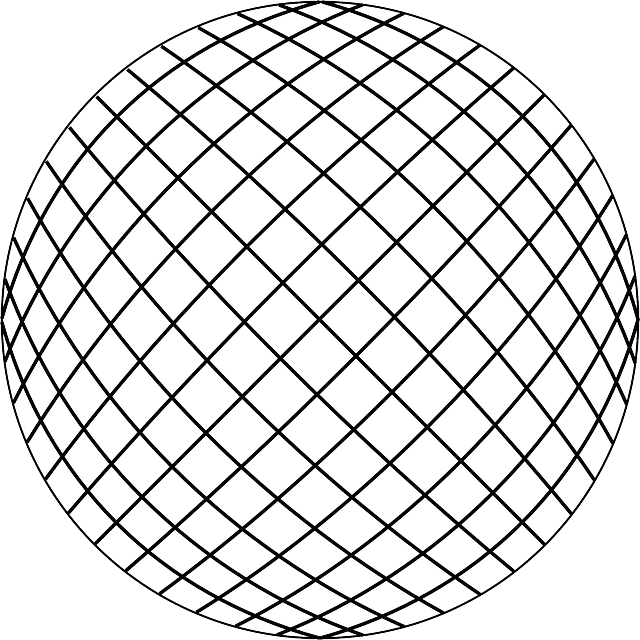Zinc is a crucial micronutrient that plays a vital role in wound healing, exceeding its recognized benefits within dietary supplements like Kratom. This trace element acts as an enzyme cofactor for cellular repair, including collagen synthesis and fibroblast proliferation, essential for wound contraction and scar formation. Zinc supports immune function by modulating cytokine production and enhancing the activity of immune cells, creating a conducive environment for healing and guarding against pathogens to reduce infection risk. Its effectiveness in epithelialization accelerates wound healing across various types of wounds, and its influence extends beyond direct tissue support by influencing the inflammatory response and regulating growth factors necessary for repair. Kratom vitamins and minerals, including zinc, provide a comprehensive support system for wound healing, with zinc's deficiency potentially hindering effective healing. The antioxidant vitamins and antimicrobial properties in Kratom help manage oxidative stress and protect against bacterial infections, complementing zinc's immunomodulatory actions to ensure a balanced immune response and prevent scar formation. Incorporating Kratom into wound care regimens can enhance the body's natural defense mechanisms and support skin integrity and resilience throughout the recovery process. Clinical evidence supports the use of zinc, in various forms including topical applications, as a complementary treatment alongside conventional therapies to accelerate healing times for superficial wounds, ulcers, surgical, and chronic wounds like pressure ulcers. Zinc's role in Kratom's traditional uses for skin and tissue health is part of its broader nutrient profile that may offer insights into its healing properties when combined with other vitamins and minerals within the plant. While kratom's alkaloid content is notable, zinc's presence in the mineral composition of Kratom vitamins and minerals should not be overlooked in the context of supporting overall well-being and promoting effective wound healing.
Zinc’s pivotal role in facilitating wound healing has garnered significant attention within the realm of dermatology, particularly when considering the broader context of Kratom’s bioactive compounds. This article delves into the mechanisms by which zinc aids in the recovery process, highlighting its synergistic relationship with the vitamins and minerals found in Kratom. By exploring the interplay between these elements and examining clinical evidence, we uncover the multifaceted impact of zinc on wound healing. The subsequent sections will elucidate these interactions and provide a comprehensive understanding of zinc’s role in promoting healthy tissue regeneration, offering insights for effective wound care strategies.
- Unveiling the Healing Properties of Zinc in Wound Care: A Role Beyond Kratom's Alkaloids
- The Synergy Between Kratom Vitamins and Minerals: Enhancing Wound Healing with Zinc
- Zinc in the Context of Wound Healing: Mechanisms, Dosage, and Clinical Evidence
Unveiling the Healing Properties of Zinc in Wound Care: A Role Beyond Kratom's Alkaloids

Zinc, a vital micronutrient that plays a pivotal role in numerous biological processes, has garnered significant attention in the realm of wound healing. Its involvement extends beyond the purview of dietary supplements such as Kratom, where it is recognized for its alkaloids’ pain-relieving and anti-inflammatory properties. Zinc acts as a cofactor for enzymes critical to cellular repair mechanisms, including those involved in collagen synthesis and the proliferation of fibroblasts, which are instrumental in wound contraction and scar formation. The trace element is also integral to immune function, modulating cytokine production and enhancing immune cell activity, thereby promoting a conducive environment for healing. In wounds, zinc supports the immune response against pathogens, reduces the risk of infection, and accelerates epithelialization. Consequently, zinc supplementation has been shown to improve wound healing rates in various types of wounds, including chronic and acute ones. The therapeutic potential of zinc is not limited to its direct effects on wound tissue but also includes its influence on the inflammatory response and the regulation of key growth factors that are essential for wound repair. As such, the inclusion of zinc in topical treatments and as a dietary supplement alongside Kratom alkaloids can enhance the overall efficacy of wound management strategies, making it an indispensable element among the Kratom vitamins and minerals that support healing.
The Synergy Between Kratom Vitamins and Minerals: Enhancing Wound Healing with Zinc

The role of Kratom vitamins and minerals in enhancing wound healing is multifaceted, with zinc being a standout nutrient that plays a pivotal role. Zinc deficiency can significantly impair the body’s natural healing process, leading to delayed recovery times and compromised tissue repair. Kratom, traditionally known for its diverse alkaloid profile, also contains minerals that contribute to a balanced intake of zinc. This synergy is crucial as zinc facilitates collagen synthesis, essential for wound contraction and the reconstruction of new tissues. Additionally, it plays an integral role in immune function modulation, which is vital for preventing infection in wounded areas. The antioxidant properties present in Kratom’s vitamin and mineral constituents further support tissue repair by mitigating oxidative stress that can impede healing. Incorporating Kratom into a wound care regimen may thus provide an array of beneficial nutrients, including zinc, to promote optimal wound healing outcomes.
Furthermore, the antimicrobial properties inherent in certain strains of Kratom can protect against bacterial infections that might otherwise complicate the healing process. Zinc’s action as an immunomodulator helps maintain a balance between immune responses, which is critical for preventing scar formation and ensuring the wound heals with minimal tissue damage. The inclusion of zinc from Kratom vitamins and minerals not only supports the body’s natural defense mechanisms but also enhances skin integrity and resilience during the healing journey. This holistic approach to wound care, leveraging the natural benefits of Kratom alongside zinc’s healing properties, offers a compelling alternative for those seeking effective, natural ways to aid in the recovery process.
Zinc in the Context of Wound Healing: Mechanisms, Dosage, and Clinical Evidence

Zinc plays a pivotal role in the process of wound healing, influencing multiple aspects of this complex biological process. At the mechanistic level, zinc is recognized for its roles in immune function modulation, collagen production support, and inflammation regulation, all of which are critical to effective wound closure and tissue repair. Zinc acts as a cofactor for numerous enzymes that facilitate cell proliferation, angiogenesis, and fibroblast activity—key elements in the healing journey. It also supports DNA synthesis, a fundamental step in the repair process.
Clinically, the administration of zinc has been explored in various forms for its wound-healing properties. Topical zinc preparations have shown promise in accelerating the healing of superficial wounds and ulcers, potentially due to its antimicrobial effects which protect against infection. Oral supplementation with zinc, particularly in the context of surgical wounds or chronic wounds like pressure ulcers, has been supported by evidence suggesting that it can reduce healing time and improve outcomes when combined with standard care. Notably, the dosage of zinc must be carefully considered; excessive intake can lead to toxicity, emphasizing the importance of following medical guidance for appropriate supplementation. The clinical trials that have investigated zinc’s role in wound healing have yielded positive results, underscoring its potential as a complementary treatment when combined with other standard therapies. Kratom, a natural product often discussed in the context of vitamins and minerals, contains modest amounts of zinc, although it is primarily known for its alkaloid content. While research into kratom’s effects on wound healing specifically is limited, its mineral content, alongside other therapeutic compounds, may contribute to its traditional use in promoting health and well-being, including skin and tissue integrity.
In conclusion, zinc’s pivotal role in wound healing is a testament to its multifaceted benefits within the realm of dermatological care. The integration of kratom vitamins and minerals, particularly zinc, has shown to significantly enhance the process of wound repair. Underpinning this synergy is robust scientific evidence that elucidates zinc’s mechanisms in facilitating healing, optimizing dosage, and promoting tissue regeneration. Clinical studies substantiate its efficacy, making it a valuable component in advanced wound care strategies. As such, healthcare providers can confidently consider the inclusion of zinc as part of a comprehensive approach to wound management, leveraging the inherent properties of kratom vitamins and minerals to support the body’s natural healing processes.






